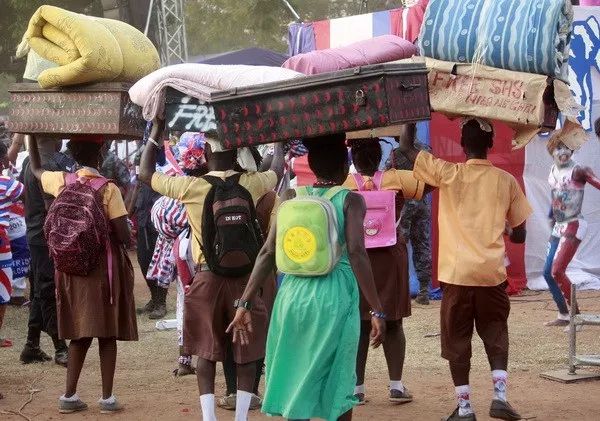
Double track policy disliked by Ghanaians — Research
The double-track policy has topped a list of government policies disliked by Ghanaian voters within two years of the President Nana Addo Dankwa Akufo-Addo-led administration, a research by the Political Science Department of the University of Ghana has revealed.
The research gathered the views of 5,000 Ghanaian voters, sampled from 590 electoral areas in 80 constituencies across all the 10 regions, on the performance of the New Patriotic Party (NPP) government since it took office in January 2017.
When asked to indicate which government policy they disliked most, a total of 1,019 respondents, representing 20.8 per cent mentioned the double-track policy, making it the highest figure in over 15 policies such as the tax on luxury goods, building of the national cathedral, and the One district, One factory policies that made the list.
According to the survey, although some 63 per cent of respondents supported government’s Free Senior High School Policy because “it has enhanced access to education,” a section of them expressed dislike for the double-track system because they are “confused about the manner at which it is been implemented.”
Dissemination
The department held a forum in Accra yesterday to disseminate the findings of the research.
The study, on the theme: “Voter Perception of Two Years of NPP Government,” was sponsored by the Konrad-Adenauer-Stiftung (KAS), a German political foundation.
In the interpretation of the findings of the research, an Electoral Historian and Senior Lecturer at the Political Science Department of the UG, Mr Kaakyire Frempong, said there was “limited communication” about the activities of the government, which he said was to blame for the inability of the respondents to appreciate some of its policies.
Touching on the issues associated with the double-track policy, he said there was the need for a deeper public education on the subject “to clear the doubts and misconceptions in the minds of the public.”
“Double track emerged the most disliked programme even though it was meant to facilitate free SHS by giving greater access. It is clear that the system was introduced hurriedly and suddenly, bringing confusion to many,” he stated.
